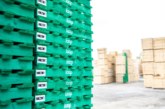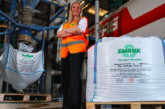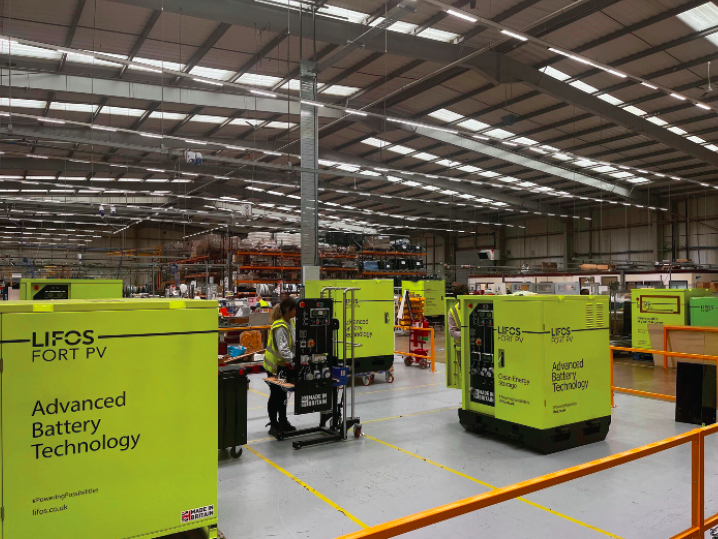
PHPD reports on Lifos, the new name in on-site power with a visit to the company’s state of the art factory in Telford. The future is green!
Sustainability is a rather dominating topic in the housebuilding sector at the moment. While a lot of the industry is looking at ways to improve eco-credentials through the end product itself, it’s easy to forget that the carbon footprint of the actual build process is just as important. Tackling this is the Lifos team, the creators of the award-winning Lifos Fort PV.
The Lifos Fort PV is essentially a battery storage system that comes equipped with its own array of solar panels. This unit itself also functions as a storage box for the 18x 190W solar panels it contains, weighing 950kg, so is easily towed from site to site. With up to 30kWh of battery storage, and 11kVA of delivery power, the Fort is designed to work in tandem with a diesel generator, where the latter serves as a backup if the solar needs to recharge. This means there’s no overkill and you’re not wasting a whole diesel generator if you’re just powering a few security cameras overnight. Equally, the Fort is silent, so you’ll stay on good terms with the local residents (well as much as you can in any case!).
In terms of applications on a housebuilding site, the Fort is intended for site cabins, sales offices and show homes. It’s a quick and easy set up too, with the option of ground mounted solar, where you can just use the integrated kick stand and set the panels down wherever you like. If space is at a premium, though, that’s not a problem either, as the team have also created the Lifos Solar Roof Frame which means your panels can be craned onto the top of a container or welfare cabin. It’s all designed to be hassle free and the team says the roof frame will take two people about an hour and a half to assemble. The whole thing can then be lifted with supplied straps onto a 10, 20 or 40ft container and locked on using the isofix points.
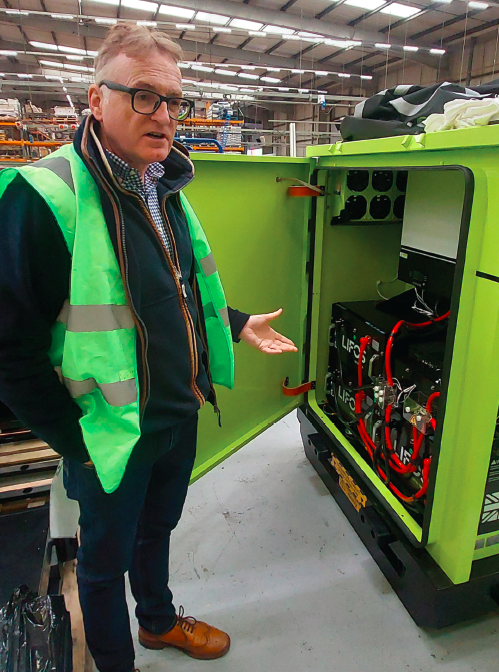
Big Savings
I suppose the next question is, how much energy can this thing actually save? Well, I was lucky enough to meet some of the Lifos team, namely the company’s MD, Adrian Williams and Business Development Director, Richard Atwal, who took me to Persimmon’s Hadley Gate site in Telford who have been using the Lifos Fort PV. The pair showed me a typical set up for the Fort, with the solar panels and battery storage working with a back-up diesel generator to power the on-site sales office. Using the company’s own LiQ data hub, they showed me that, in three months, the site had saved 11,074KG of CO2 and 3,953.89L of fuel. Not only is that a huge saving towards net zero goals, you can also imagine the monetary cost there and how quickly those savings will add up. In fact, the diesel generator on this Persimmon site went from getting a diesel delivery site every 3 to 4 weeks to once or twice a year. The diesel generator itself went from being on 164 hours a week to 4 hours a week. All of this data is available to the user too, with the aforementioned LiQ Data Hub which has a downloadable app. You can input your usual fuel costs and consumption and see in real time how much you’re saving. The app monitors the solar storage in the Fort too, and you can switch power input, although the Fort will do this automatically if the battery needs recharging.
Bespoke Design
As part of my visit, Adrian and Richard were kind enough to show me around their factory in Telford. Each Fort goes through a rigorous testing process and it’s clear from the production line that the whole Lifos team knows what they’re doing. Adrian himself has 25 years of experience in the PV sector and is complemented by an equally impressively knowledgeable team, who have designed the Fort from the ground up. Adrian explains the Fort’s bespoke production: “All the key elements within are entirely bespoke. Each component is designed from the ground up by people who know what they’re doing in this space. There’s nothing off the peg.”
The sustainability factor doesn’t just extend to the type of energy being produced either. Where possible, the parts involved are sourced from within a 70mile radius of the Telford HQ. Additionally, the batteries are made up of prismatic cells and so easier to recycle.
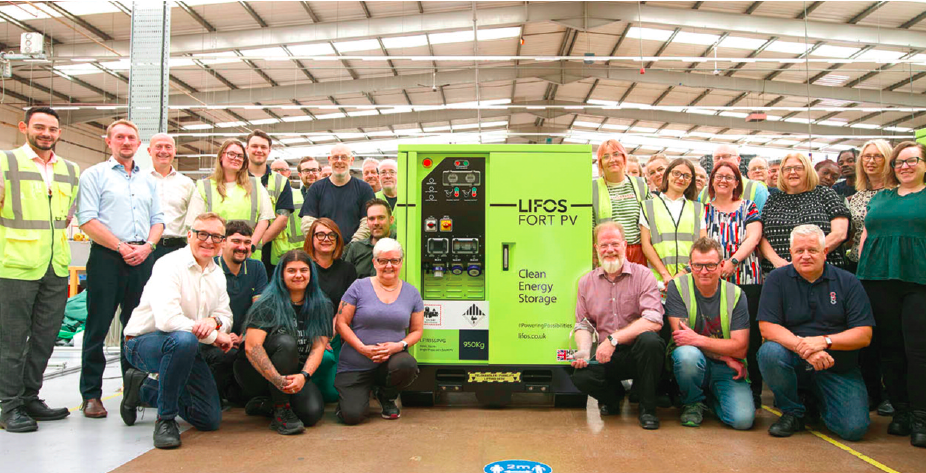 Seven Years Good Luck
Seven Years Good Luck
Speaking on recycling and that all important battery life, Lifos offers both a five-year warranty and seven-year switch scheme. After seven years, owners will have the option to buy a new battery for a third of the cost. This will be installed by the company’s in-house Service Engineers who will then take away the old battery and recycle it. Because the battery systems are built in house, Lifos will be able to remove the battery cells and reuse them in other lighter power applications. The battery is a modular design, so it is easier to break down the battery into its various components and when the battery reaches end of life the company has a certified recycling partner to manage and recycle the various components. Those who say yes to this seven-year switch will then benefit from an additional five-year warranty.
The Lifos team have certainly managed to make a name for themselves already. The Fort PV won the Environmental Initiative Award at Plantworx 2023 and was a part of this year’s Glastonbury Green Futures innovation centre, helping to power the festival. An eco-friendlier power source which saves money in your pocket too – what’s not to like!
For more information on Lifos, click here.




